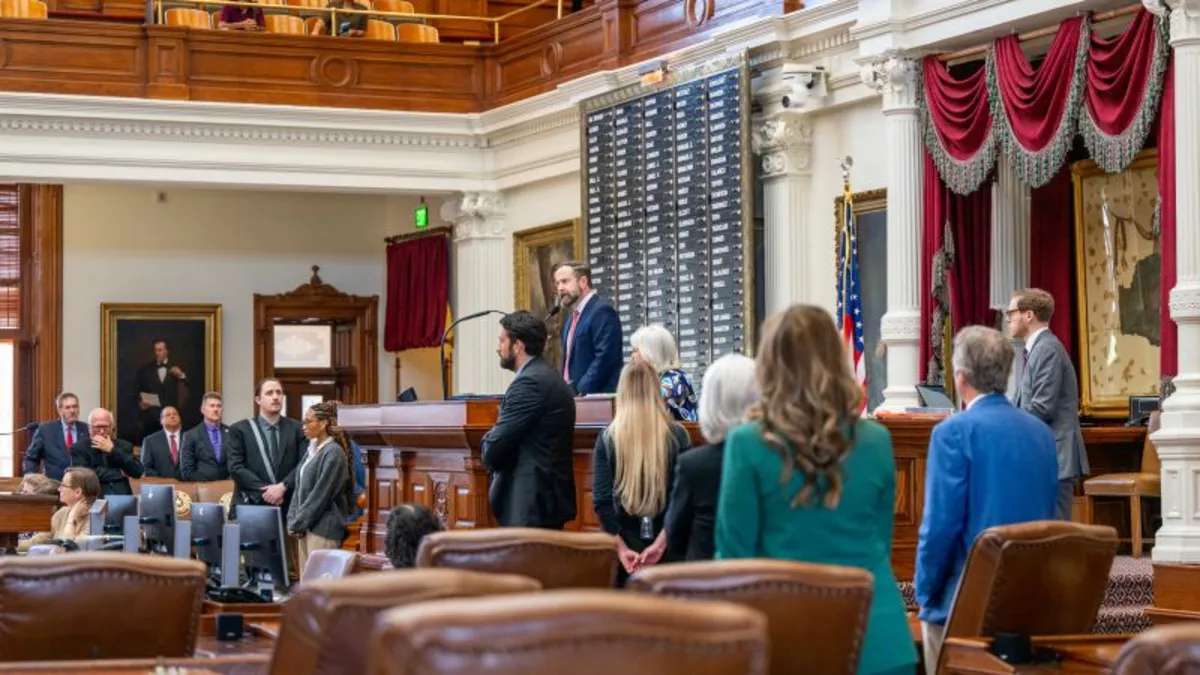
Members of the Texas House of Representatives are set to make another attempt to achieve a quorum on Monday, following a standoff that has persisted for over a week. This situation arose after House Democrats vacated the state in an effort to obstruct a GOP-led redistricting initiative. Last week, the state House was unable to reach a quorum during each of its meetings, intensifying a growing gerrymandering conflict initiated when former President Donald Trump urged Texas Republicans to redraw district lines.
The redistricting effort aims to create as many as five additional U.S. House seats for the Republican Party, potentially providing the GOP with a buffer against anticipated losses in the upcoming 2026 midterm elections. As time is running out in the special legislative session, House Democrats are faced with a critical decision regarding how long they can remain outside Texas without a clear strategy for resolution. Meanwhile, Republicans may find themselves pressed for time to finalize the new district maps.
In response to the ongoing absence of the Democratic lawmakers, Texas Republicans have continued their efforts to circumvent the situation. Governor Greg Abbott has sought intervention from the state’s Supreme Court to declare the seat of House Democratic Caucus Chairman Gene Wu vacant, as Wu fled to Chicago along with other Democratic members. Additionally, U.S. Senator John Cornyn has reportedly enlisted the help of FBI Director Kash Patel to assist state law enforcement in locating the missing lawmakers.
The absent lawmakers are also confronting significant financial pressures. They face fines of $500 per day for their absence, and critically, they are prohibited from using their campaign or official funds to cover these penalties. Recently, a Texas judge issued a temporary injunction against former gubernatorial candidate Beto O’Rourke’s political organization from fundraising for the purpose of covering travel expenses for these lawmakers.
In a broader context, leaders from blue states have pledged to counter the GOP's redistricting efforts by creating Democratic-leaning seats in the U.S. House. California Governor Gavin Newsom has announced plans for a November referendum to introduce new U.S. House maps, which could result in the establishment of up to five additional Democratic-held seats. These proposed maps are set to be unveiled this week, as confirmed by State Assembly Speaker Robert Rivas.
The political landscape in Texas remains tense as both parties navigate the complexities of redistricting and legislative strategy. With the clock ticking down on the special session, the outcomes of these efforts will have lasting implications for the state's political balance and representation.